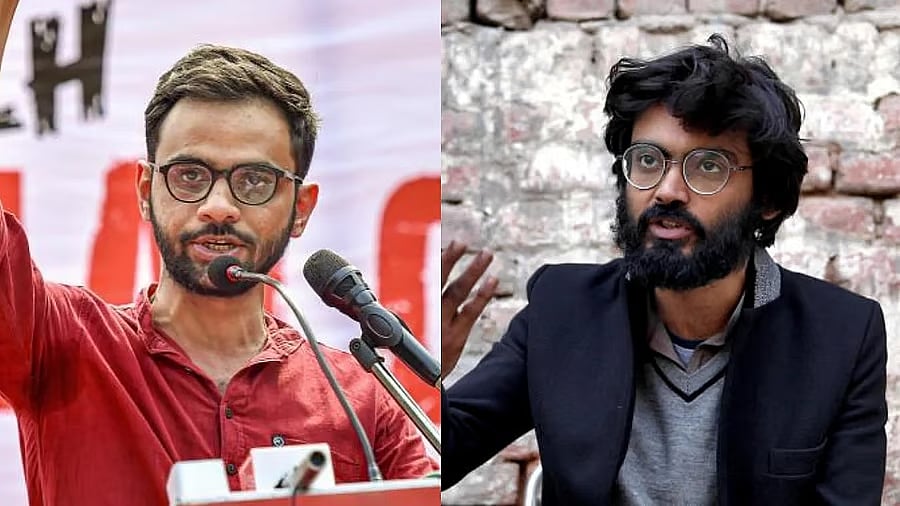
Umar Khalid (L) and Sharjeel Imam (R)
Credit: PTI Photo, Reuters Photo
New Delhi: The Delhi Police on Thursday contended before the Supreme Court that when intellectuals become terrorists, they become more dangerous than those working on the ground, while opposing the bail pleas of those arrested for larger conspiracy in 2020 Delhi riots.
The police also claimed that the suspects had planned something similar to Nepal and Bangladesh, which did not bear fruit.
Additional Solicitor General S V Raju, on behalf of the Delhi police, strongly opposed before a bench of Justices Aravind Kumar and N V Anjaria the bail pleas of activists Umar Khalid, Sharjeel Imam and others in the February 2020 riots case.
"It has become a trend now for doctors and engineers to engage in anti-national activities," he said, alluding to the recent blast in Delhi and arrests of doctors.
Raju said the speeches made by the activists in the instant case led to violence, which resulted in the death of 53 people, and more than 500 people were injured.
He also showed videos of Imam giving "inflammatory speeches" against the Citizenship Amendment Act, and also videos showing him giving speeches at Chakhand, Jamia, Aligarh, and Asansol in 2019 and 2020, before the riots in February 2020 riots in Delhi.
Raju said something was planned on the scale of Nepal and Bangladesh but it did not happen.
Raju, pointing out that Imam is an engineering graduate, submitted that nowadays there is a trend that doctors, engineers are not doing their professions but engaging in anti-national activities. The Delhi Police stressed that it is not a matter of simple protests but violent protests, and the accused were referring to blockades.
The court asked if speeches were a part of the chargesheet. Raju replied in the affirmative.
He also vehemently argued that protests were timed with US President Donald Trump's visit to India to get international media coverage, and the ultimate intention was regime change.
Raju argued that CAA protests were a red-herring, the real purpose was regime change, creating economic deprivation and chaos across the country. “These so-called intellectuals are more dangerous than the ground-level terrorists," he said.
He contended that intellectuals used state funding to become doctors and then, they do nefarious activities. “They are much more dangerous," he said.
The Delhi Police counsel submitted that activists wanted to block supplies to Delhi and economically choke the "chicken's neck" in Assam — the narrow stretch of land that connects the northeast to the rest of India.
The matter arose out of the challenge to order Delhi High Court's September 2 order, which rejected the bail by the activists in a case registered under the Unlawful Activities (Prevention) Act (UAPA) regarding the alleged larger conspiracy in connection with the 2020 north-east Delhi riots.
